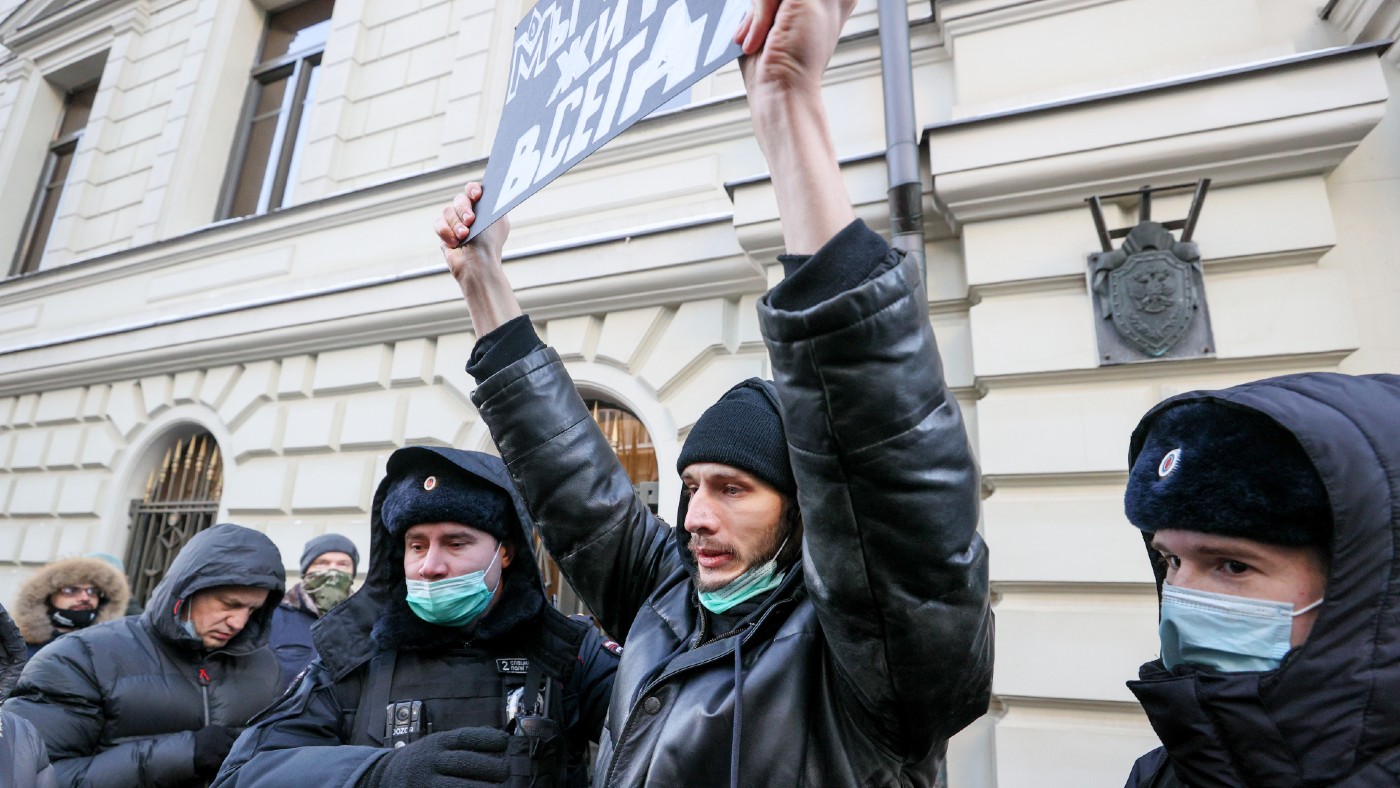Why the closure of human rights group Memorial is a ‘bad omen for Russia’s future’
Dubbed ‘Russia’s conscience’, the watchdog shone a light on the atrocities of the Soviet era

A free daily email with the biggest news stories of the day – and the best features from TheWeek.com
You are now subscribed
Your newsletter sign-up was successful
For 32 years, Memorial, Russia’s top human rights group, has “worked to commemorate victims of Soviet repression” and to promote “open debate”, said Rachel Denber in The Moscow Times. Dubbed “Russia’s conscience”, the group shone a light on the atrocities of the Soviet era, from the mass executions of the Great Terror to the millions condemned to forced labour in the Gulags; it also examined current human rights abuses. But it will do so no longer.
Last week, Russia’s supreme court ordered Memorial’s closure. The pretext was an alleged failure to adhere to Russia’s repressive “foreign agents” law, which requires groups that accept foreign money to include a disclaimer on all public statements – and is often used to punish organisations the Kremlin deems unfriendly.
Memorial will appeal the decision, but it’s unlikely to succeed, since the closure is entirely in keeping with the Kremlin’s “relentless determination” to “wrestle back” control over discussion of Russia’s turbulent history.
The Week
Escape your echo chamber. Get the facts behind the news, plus analysis from multiple perspectives.

Sign up for The Week's Free Newsletters
From our morning news briefing to a weekly Good News Newsletter, get the best of The Week delivered directly to your inbox.
From our morning news briefing to a weekly Good News Newsletter, get the best of The Week delivered directly to your inbox.
Memorial’s closure is “a turning point in the history of post Soviet Russia”, said Le Monde (Paris). Founded by Nobel Peace Prize winner Andrei Sakharov, among others, it started in the 1980s as a dissident group, but in 1992 became a publicly recognised institution.
In the 1990s, its historians gained access to archives to lay bare the atrocities of Stalinism – including by listing some three million Gulag victims. Yet in the 2000s, it fell foul of Vladimir Putin’s determination to glorify the Soviet Union. In 2016, it was listed as a foreign agent and one of its historians, Yuri Dmitriev, was arrested for alleged sexual abuse (his jail term was increased to 15 years last week). Now, the Kremlin has closed it altogether; the prosecutor alleged that Memorial had “created a false image of the USSR as a terrorist state”.
The decision shows just how far Putin is willing to go to “whitewash Russia’s Soviet history”, said Valerie Hopkins and Ivan Nechepurenko in The New York Times. And his efforts are working: thanks to his glorification of Stalin, a record 70% of Russians now believe he played a positive role in Russian history.
Both Memorial’s historical work and its determination to denounce repression in the “new Russia” made it a“mortal enemy” of Putin’s Kremlin, said Andreas Rüesch in Neue Zürcher Zeitung (Zurich). But by shutting off criticism of even its darkest times, Russia is condemning itself to “intellectual narrowness and a climate of paralysing fear”. Memorial’s closure is a “bad omen for Russia’s future”.
A free daily email with the biggest news stories of the day – and the best features from TheWeek.com
-
 Buddhist monks’ US walk for peace
Buddhist monks’ US walk for peaceUnder the Radar Crowds have turned out on the roads from California to Washington and ‘millions are finding hope in their journey’
-
 American universities are losing ground to their foreign counterparts
American universities are losing ground to their foreign counterpartsThe Explainer While Harvard is still near the top, other colleges have slipped
-
 How to navigate dating apps to find ‘the one’
How to navigate dating apps to find ‘the one’The Week Recommends Put an end to endless swiping and make real romantic connections
-
 The fall of the generals: China’s military purge
The fall of the generals: China’s military purgeIn the Spotlight Xi Jinping’s extraordinary removal of senior general proves that no-one is safe from anti-corruption drive that has investigated millions
-
 Epstein files topple law CEO, roil UK government
Epstein files topple law CEO, roil UK governmentSpeed Read Peter Mandelson, Britain’s former ambassador to the US, is caught up in the scandal
-
 Iran and US prepare to meet after skirmishes
Iran and US prepare to meet after skirmishesSpeed Read The incident comes amid heightened tensions in the Middle East
-
 Syria’s Kurds: abandoned by their US ally
Syria’s Kurds: abandoned by their US allyTalking Point Ahmed al-Sharaa’s lightning offensive against Syrian Kurdistan belies his promise to respect the country’s ethnic minorities
-
 Israel retrieves final hostage’s body from Gaza
Israel retrieves final hostage’s body from GazaSpeed Read The 24-year-old police officer was killed during the initial Hamas attack
-
 China’s Xi targets top general in growing purge
China’s Xi targets top general in growing purgeSpeed Read Zhang Youxia is being investigated over ‘grave violations’ of the law
-
 Panama and Canada are negotiating over a crucial copper mine
Panama and Canada are negotiating over a crucial copper mineIn the Spotlight Panama is set to make a final decision on the mine this summer
-
 Iran unleashes carnage on its own people
Iran unleashes carnage on its own peopleFeature Demonstrations began in late December as an economic protest